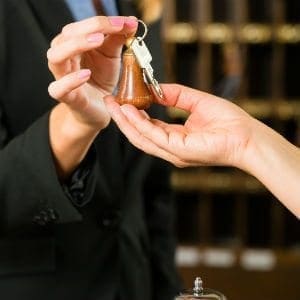 It’s no secret that having a strong Internet presence is crucial to thriving in today’s fast-paced, digital world. But how can boutique hotels compete with major hotel groups that can throw more resources at making sure their properties show up first in a potential traveler’s search results?
It’s no secret that having a strong Internet presence is crucial to thriving in today’s fast-paced, digital world. But how can boutique hotels compete with major hotel groups that can throw more resources at making sure their properties show up first in a potential traveler’s search results?
By following these SYes, major hotel groups can throw more resources at making their properties show up first in a potential traveler’s search results, but none-the-less there are some SEO strategies boutique hotel owners can use to stand out and drive more sales.
Explore niche keywords
Any discussion about SEO generally begins with keywords, and while the importance of keywords has decreased somewhat in recent years, they are still significant.
When a traveler searches for a city name and a hotel, they will typically receive results that lead to major hotel chains. This gives boutique hotel owners the opportunity to show up in results for searches that are geared toward what makes their hotel unique. For example, boutique hotel owners might focus on its location in a specific neighborhood, proximity to a local popular destination, or unique accommodations or spa services.
There are several ways to accomplish this. Looking at web analytics to find less obvious keywords that drew visitors to your site is important, but so is a boutique hotelier’s knowledge of their own property. Owners should know what guests say brought them to their property, and use this information to craft keywords around these subjects.
Nonetheless, when it comes to incorporating keywords into a website, remember that SEO is no longer about fitting as many keywords onto a site as possible, and hasn’t been for some time. Search engines now look for where keywords are placed and the phrasing around keywords.
This means using keywords in page titles, headers, and top paragraphs as appropriate, but also having page content that flows naturally. In short, boutique hoteliers should create content for travelers—not just search engines.
Increase citations
Search engines like to see information that is accurate and consistent. For local information, search engines scours the Internet to find and verify information about a business’ name, address, and phone number—otherwise known as NAP. Each place that a hotel’s name appears is known as a “citation.”
There are some obvious places for hotels to place their NAP, including their own websites and Yelp. What are some other good places for hotels to add their NAP? The main location hotels should focus on are Infogroup, Acxiom, and Localeze, as many local services such as CitySearch and YellowPages get information from these companies. Other beneficial places include chambers of commerce and tourism sites.
Before any of this, however, boutique hotel owners need to make sure their business is listed in Google Places for Businesses, Bing Business Portal, and Yahoo Local Listings. Additionally, the information posted to these services must be as consistent as possible.
For those hotels that have already spread their NAP across the Internet, it’s never a bad idea to double check various sites to make sure it’s accurate.
Increase backlinks
A backlink from a reputable website is essentially a vote of confidence. To compete with major hotel chains, boutique hotels need to increase links to their site, as they are the single largest off-site ranking factor used by search engines. A word of warning, however, not all links are equal; it’s best to focus on obtaining high-quality links.
How can boutique hoteliers earn credible backlinks? One of the most common methods is to guest blog for sites. Again, the content will need to be high quality.
A second popular method is creating infographics. While infographics don’t receive as many backlinks as they once did, they are still extremely effective.
Nevertheless, creating content is only part of the challenge of getting backlinks. The content still needs to be promoted on social media. After writing a blog post or creating an infographic, hotels should post links to all their social media accounts and message people and companies who were mentioned in the content.
Build and maintain a quality website
As search engines increase the complexity of their SEO algorithms, what ultimately becomes important is having a quality site that is an asset to visitors.
A well-designed site with clear information about what a hotel has to offer will draw web traffic, and increase search rank.
Boutique hotel owners should offer their website visitors valuable information that will pique their interest. This information might include virtual tours, image galleries, blog posts, and guides that provide details about local areas, tourist attractions, and entertainment hotspots.
If boutique hoteliers have a quality website with informative and relevant content, they’ve already taken the first, and perhaps most important, step to ranking higher.
With some increased focus on simple SEO concepts, boutique hotel owners can quickly boost their search rankings and increase visitors.
About the author
 Abi Mandelbaum is co-founder and CEO of YouVisit, the only fully integrated platform for creating, distributing, and monetizing virtual reality and other immersive experiences across all devices, including headsets, mobile, and desktop. YouVisit has worked with thousands of businesses and institutions such as Hewlett Packard, Microsoft, Carnival, Yale, Zumba, and New York’s Central Park.
Abi Mandelbaum is co-founder and CEO of YouVisit, the only fully integrated platform for creating, distributing, and monetizing virtual reality and other immersive experiences across all devices, including headsets, mobile, and desktop. YouVisit has worked with thousands of businesses and institutions such as Hewlett Packard, Microsoft, Carnival, Yale, Zumba, and New York’s Central Park.















